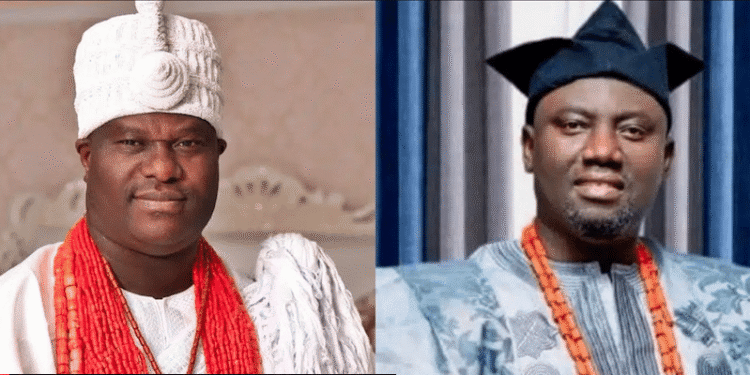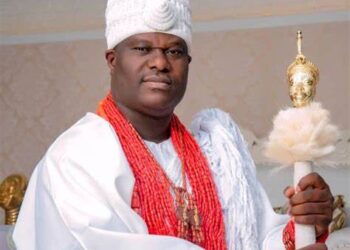The Alaafin of Oyo’s palace is reportedly preparing to release a Supreme Court judgment that allegedly supports his exclusive authority to confer chieftaincy titles across Yorubaland, following the expiration of his 48-hour ultimatum to the Ooni of Ife.
Palace sources revealed Wednesday that Oba Akeem Owoade has been conducting meetings with traditional chiefs in Oyo town to determine the next course of action after the Ooni failed to revoke the controversial “Okanlomo of Yorubaland” title granted to businessman Dotun Sanusi.
The ultimatum, issued Monday through the Alaafin’s media aide Bode Durojaiye, demanded that Oba Enitan Ogunwusi withdraw the chieftaincy title within 48 hours, citing what the palace described as a breach of Supreme Court precedent regarding pan-Yoruba title conferments.
According to palace sources speaking to Punch, the Alaafin may now unveil the Supreme Court judgment to reinforce his position as paramount ruler of Yorubaland and challenge what he considers an overreach by the Ooni, whose traditional authority he claims is limited to the former Oranmiyan Local Government area.
The dispute has generated significant online discussion, with Nigerians speculating about the “consequences” previously hinted at by the palace, while others have urged restraint and withdrawal of the ultimatum.
Supporting the Alaafin’s position, Babajide Agunbiade, the Atóbaáse of Yorubaland, issued an open letter emphasizing the Oyo monarch’s historical and political supremacy among the Yoruba people. He advised the Alaafin to pursue legal action to reassert his authority.
Agunbiade traced the Alaafin’s claims to the historical Oyo Empire, whose influence once extended across present-day Yorubaland, Dahomey, Offa, and parts of Kogi State. He argued that the Ooni’s action represented “an attempt to undermine the authority and tradition of the Alaafin.”
“As the paramount ruler of the Oyo Empire, the Alaafin’s jurisdiction and authority are rooted in tradition and law,” Agunbiade wrote, asserting that issuing Yoruba-wide titles is a prerogative reserved exclusively for the Alaafin as emperor of the Yoruba people.
However, legal practitioner Pelumi Olajengbesi has strongly contested these claims, arguing that no Supreme Court judgment or constitutional instrument grants the Alaafin exclusive pan-Yoruba authority.
Olajengbesi cautioned that judicial pronouncements must be confined to their specific facts and circumstances, stating that no court decision has ever declared the Alaafin the sole custodian of Yoruba legitimacy.
“With the greatest respect, the oft-cited Supreme Court decision that purportedly vested Alaafin authority now exaggerated must be properly confined to its facts,” the lawyer explained, emphasizing that no statute in any Yoruba-speaking state grants such exclusive authority to the Alaafin.
The legal expert defended the Ooni’s actions as lawful, historical, and cultural, describing them as exercising power “intra vires” rather than usurping authority. He emphasized Ile-Ife’s universally recognized status as the cradle of Yoruba civilization.
“Every student of Yoruba history knows, tradition and scholarship unanimously affirm Ile-Ife as the cradle of existence of the Yoruba people,” Olajengbesi stated, noting that all Yoruba kingdoms, including Oyo, derive their authority from Oduduwa’s foundation at Ile-Ife.
He found no legal, historical, or moral defect in the Ooni’s conferment of the “Okanlomo of Oodua” title on Sanusi, describing it as a timely reminder that while empires may rise and fall, Ile-Ife and the Ooni remain “timeless, indivisible, and unimpeachable.”
The escalating dispute between two of Yorubaland’s most prominent traditional rulers highlights ongoing tensions over ceremonial precedence and jurisdictional authority within Nigeria’s complex traditional institution system.



















